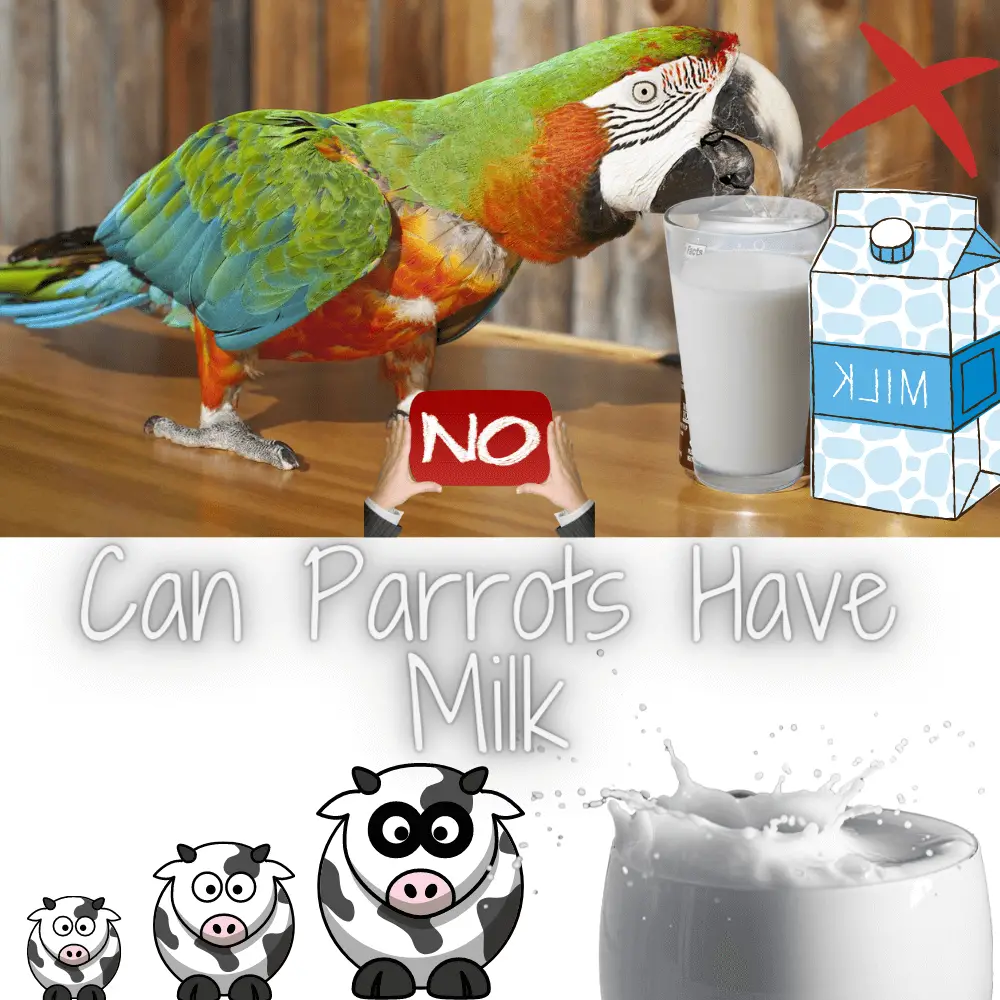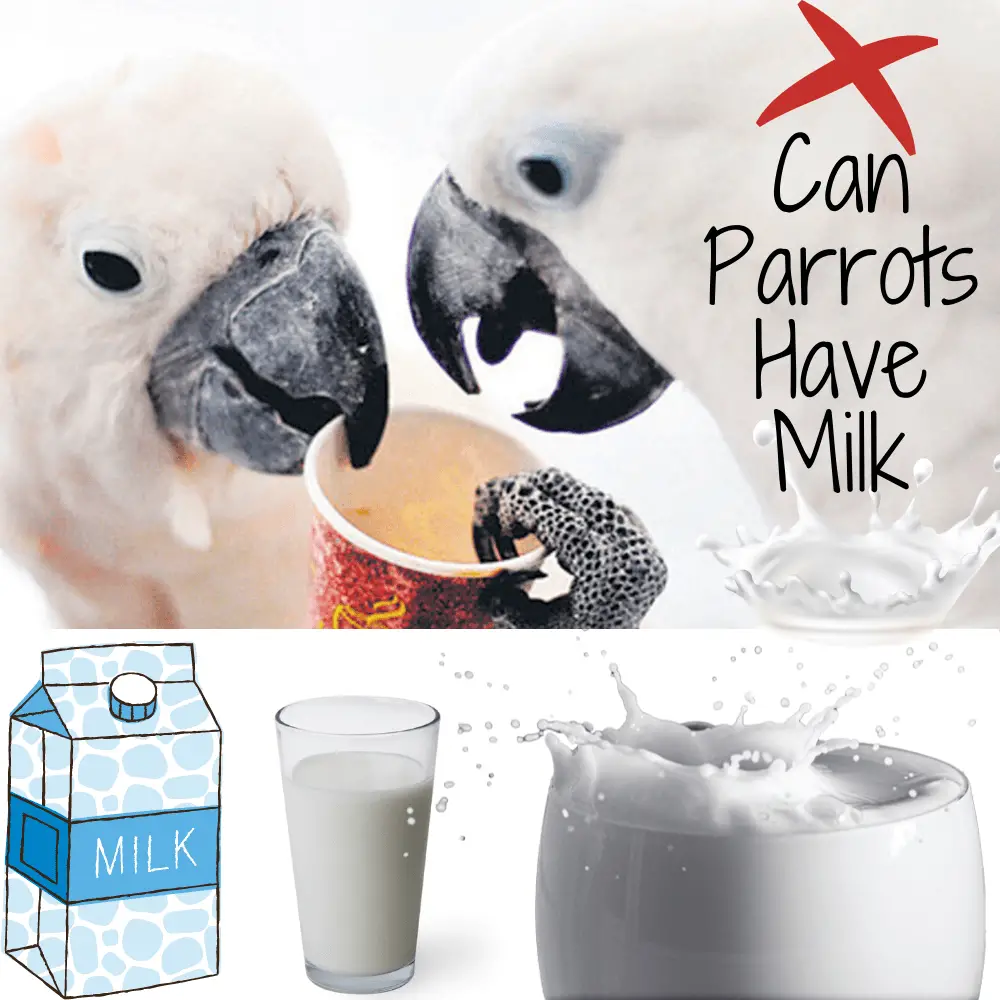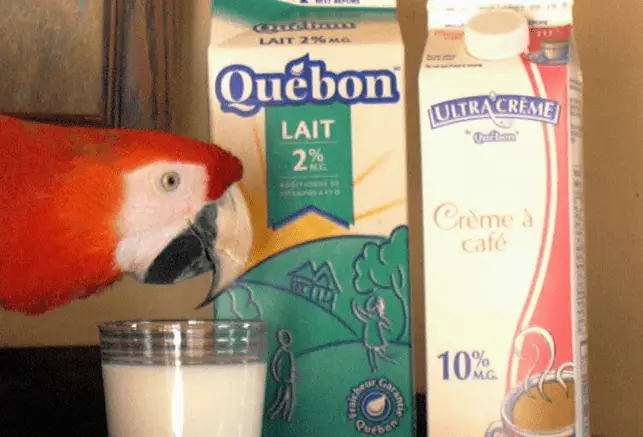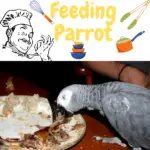
Can parrots consume dairy products? Can parrots have milk: In the first moments of their lives, mammals feed on breast milk, which they assimilate thanks to lactase.
However, parrots or Parakeets, in nature, are at no time of their existence led to consuming dairy products. As a result, they are not supposed to absorb it and do not have the enzymes necessary to digest them.
While they are still in the nest, their parents regurgitate for them the food they need for their growth. The “milk” given by some species to their young has nothing to do with a dairy product. This false friend is actually a set of cells and secretions. Psittacines Psittaciformes Psittacidae does not have lactase and is, therefore, unable to digest milk sugar (lactose), which causes them large intestinal disorders. A 10-30% proportion of lactose in their diet causes diarrhea.
Skimmed milk powder and whey powder are the ones that contain the most. Their consumption is therefore much more discouraged for our birds.
The bacteria that ferment yogurts facilitate digestion. They still contain lactose, but the concentration depends on the manufacturers. Scientists have shown that by a phenomenon to date unexplained, these facilitate the digestion of lactose. This is why it is sometimes recommended following antibiotic treatment, to help the intestinal flora to reconstitute itself. For an African Grey Parrot, a hazelnut of plain yogurt per day is then enough.
Thus, some dairy products contain less, such as cheese and yogurt, but they should only be given very rarely, and in very small quantities.

Can parakeets drink milk?
Often we are advised and told not to offer milk to parrots, as they do not digest lactose. It is good and above all… it is true!
But why is that?
Not to offer milk is not a dogma of the parrot bible that you have to believe without understanding or any of these avian legends which have the rind. The best is to take a quick look at it in order to understand the why and how.
The first real reason that falls under the ax of logic is that: parrots are not mammals and that only the latter are fed on mother’s milk during their juvenile period. Parrots, on the other hand, are oviparous (an animal that reproduces by eggs that are laid before hatching ), do not have udders, and feed their young by regurgitation of food from the crop.
The term often heard “crop milk” does not refer at all to the milk of mammals, we are talking here about secretions and cells coming from the crop of the parrot parent during the regurgitation of the predigested food.

Milk
Milk is a white, opaque, highly nutritious liquid secreted by the mammary glands of female mammals ( Petit Robert ). Milk is therefore the natural food of baby mammals and they have the enzyme essential for its digestion, namely lactase. This enzyme is not produced by the parrot, since it would be completely useless, not being a mammal …
The main nutrient in milk is water in a proportion of 87 to 91%, depending on the level of fat. The other nutrients are lactose at 4.9%, fat at about 3.5%, and protein, also at 3.5%. There are also other nutrients that are made up of minerals and vitamins.
Lactose (the sugar in milk ) is usually unique to mammals. Birds cannot make it, cannot digest it, or absorb it. This means that when a parrot ingests lactose, it stays intact in its digestive system until it is fermented by bacteria or evacuated in the droppings. When lactose stays in the bird’s intestine at a certain dose, it draws water to that part of the body; the water ferments the lactose, which causes diarrhea in the parrot. The amount of lactose required in a diet to produce diarrhea is 10 and 30% of the dry weight value of the food ( without water ) ingested by the bird.
When products like cheese, butter, yogurt, powdered milk, and dried whey are made, the nutrients in the milk are retained, released, or processed. For example: in cheese, most of the fat and protein are retained, but lactose, part of the protein as well as water-soluble vitamins and minerals are found in whey, which is the liquid that remains after coagulation of the cheese and, at the end of the process, is separated from the preparation.
In the case of yogurt, the fermentation of lactose produces lactate. Lactose and lactate are very different, despite the similarity of their names. Water, proteins, minerals and vitamins, and sometimes milk fat are generally beneficial to the bird ( unless they are found in too high concentrations ). There is little to worry about these nutrients. The main problem with milk is lactose.
Lactose
Lactose is the natural sugar found in milk. Lactose is actually the biggest problem with milk. The percentages of lactose vary from product to product. For example, skimmed milk powder contains 50% and dried whey is worse, it contains 70%. In cheeses and yogurts, lactose is separated and is found in the whey that is not preserved. In the case of yogurt, the fermentation of lactose turns it into lactate which does not bother parrots.
Lactase
Lactase tablets ( like Lactaid ) or milk with added lactase for people with lactose intolerance should never be given to a parrot.
Although lactase is the enzyme that is used to absorb lactose, converting it into glucose and galactose ( two smaller forms of sugar ) and mammals convert these forms to sugar without any problem, there is an A major problem in parrots that cannot be found in mammals: birds cannot convert galactose into glucose and, consequently, galactose accumulates in their blood and interferes with the transport and assimilation of glucose. This action often results in the death of the parrot.
Dairy products
Dairy products are not necessary for the diet of your parrots, but if like me you live with “cheese addicts”, do not offer cheeses made from raw milk. On the other hand, there is no contraindication in the case of yogurts, and, what I have found best as a substitute for cow’s or goat’s milk, is soy milk. Parrots see nothing but fire and can continue to eat their milk cereals in the morning!
Foods That Are Toxic to Parrots
SOURCE:MARLENE MC’COHEN
Related Articles:




















